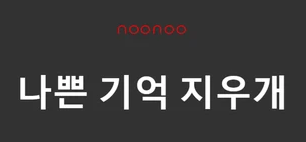In the vast landscape of Korean drama, “나쁜 기억 지우개” stands out as a poignant narrative that combines emotional depth with engaging storytelling. This drama, whose title translates to “Bad Memory Eraser,” is not merely a tale of erasing past grievances but a profound exploration of the human psyche and the effects of memory on personal identity and relationships.
Plot Overview: A Journey Through Memory and Emotion
“나쁜 기억 지우개” intricately weaves a story that revolves around a unique premise— the ability to erase unpleasant memories. The central character, grappling with a painful past, encounters a mysterious device or method that promises to remove these negative memories. However, the drama delves far beyond a superficial plot device. It engages with complex themes such as identity, forgiveness, and the consequences of altering one’s past.
The narrative unfolds as the protagonist navigates the duality of their existence—balancing the allure of forgetting traumatic experiences against the inherent risk of losing significant parts of their life. As the plot progresses, viewers are taken on an emotional rollercoaster, witnessing the internal and external conflicts that arise from tampering with one’s memories.

Character Development: Complexity and Relatability
One of the standout features of “나쁜 기억 지우개” is its well-crafted characters. Each character is meticulously developed, offering a rich tapestry of personalities and motivations. The protagonist’s journey is central to the story, and their evolution from a tormented individual to someone seeking solace and understanding is portrayed with remarkable depth.
Supporting characters, including family members, friends, and adversaries, are also given considerable attention. Their interactions with the protagonist provide additional layers of meaning, illustrating how memories shape and are shaped by our relationships with others. The nuanced portrayal of these relationships adds to the drama’s emotional impact, making the characters’ experiences both compelling and relatable.
Themes and Symbolism: Beyond the Surface
“나쁜 기억 지우개” is rich in thematic content and symbolism. The primary theme—the erasure of bad memories—serves as a metaphor for the broader human desire to escape pain and trauma. However, the drama skillfully addresses the idea that memories, both good and bad, are integral to our personal growth and identity.
The symbolism of the memory eraser device is particularly noteworthy. It represents not just a means of forgetting but also a deeper commentary on the human condition. By exploring the consequences of altering one’s past, the drama invites viewers to reflect on the value of memories, the role they play in shaping who we are, and the importance of confronting rather than evading past traumas.
